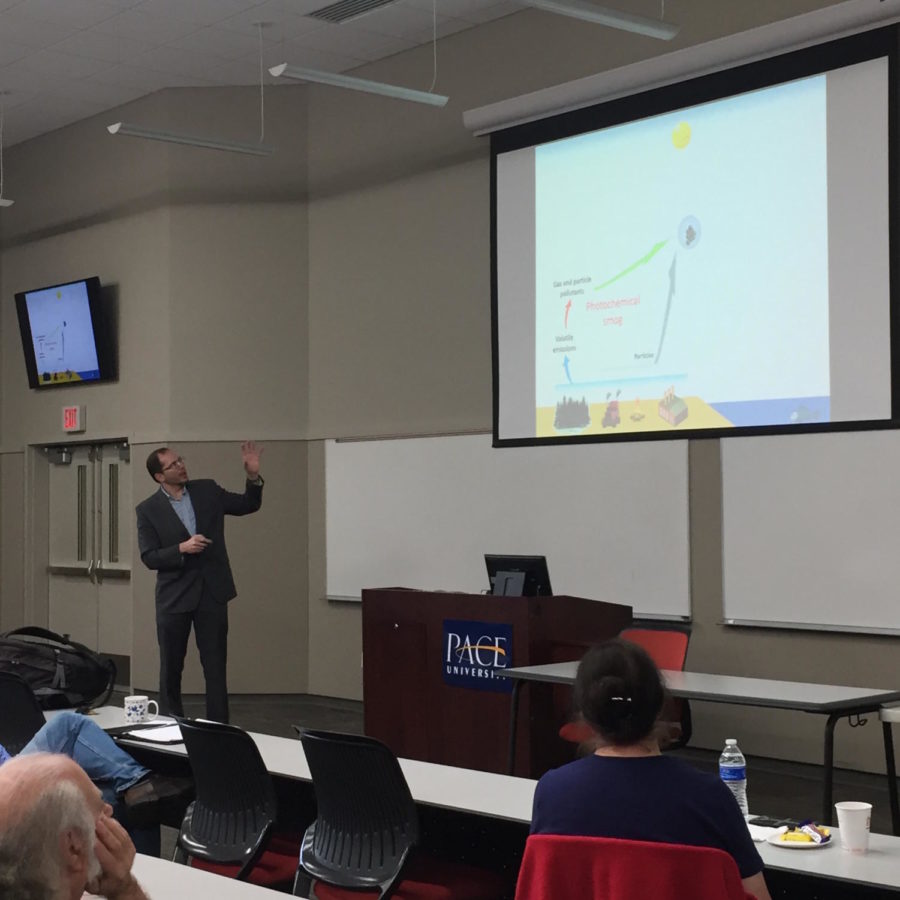Free Science Lecture: The Chemistry of Air Pollution presented Wednesday at Pace
Dr. Alexei Khalizov passionately teaches the Chemistry of Air Pollution on Wednesday.
The accuracy of certain environmental issues, such as global warming, is often debated. However, air pollution is not an issue that is up for debate. Physical chemist Alexei Khalizov taught a lecture to these ends called The Chemistry of Air Pollution.
“If you want to understand pollution and reduce pollution, you must understand the chemistry,” Khalizov said.
The hour-long seminar took place in the David J. Pecker Lecture Hall in Willcox on Wednesday. Hosted by the American Chemical Society (ACS) Pleasantville chapter, a Pace club comprised of science students, there was a turnout of just under 50 attendees including faculty members and students alike.
“It allows an expert to come in and tell us something we don’t know… It’s a learning experience,” Professor of Chemistry, Joe Krumpfer said. “Most importantly, students can realize how much they understand already.”
The lecture began with the history of air pollution, which according to Khalizov, is dated back to ancient times. Predictably, a large part of the presentation was dedicated to the science behind air pollution. He also discussed the impact that air pollution has on humans as well as the environment. Khalizov spoke passionately about the issue.
“Bad pollution control could be as bad as no pollution control,” Khalizov said. “You want to do it right… You want to understand the science.”
Khalizov earned a Ph.D. in Physical Chemistry and a BS in Chemistry while studying in Russia. His research is focused on chemical transformations and environmental impacts of atmospheric pollutants.
“My goal was twofold,” Khalizov began. “First, I want to share information about my research and collaborate with faculty. I also want to advertise my grad program at New Jersey Institute of Technology (NJIT) and we consider Pace to be a good source for us.”
Your donation supports independent, student-run journalism at Pace University. Support the Pace Chronicle to help cover publishing costs.


